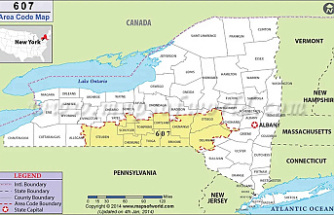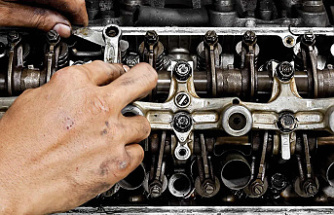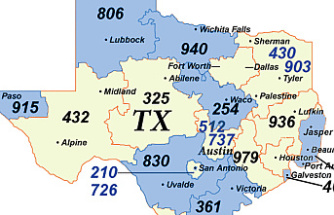Sign up for one of our email newsletters.
Updated 12 minutes ago
Freshly approved permits in hand, Sunoco Logistics is digging away on its Mariner East 2 pipeline — a project that will quadruple the volume of natural gas liquids flowing across Pennsylvania once the company navigates more than 2,000 streams, wetlands, roads and railways between Western Pennsylvania and the Philadelphia area.
The company says it expects no problems through construction and beyond, though environmental groups across the state fear the worst.
“When they get it wrong, people die or lose homes, water quality, air quality. They have long-term repercussions,” said Melissa Marshall, community advocate with the Mountain Watershed Association.
The Melcroft-based conservation group, with Delaware Riverkeeper Network and Clean Air Council, appealed a recent DEP decision to permit construction of the pipeline.
Judge Bernard A. Labuskes Jr. of the Pennsylvania Environmental Hearing Board on Thursday rejected a request by the environmental groups to reconsider a decision he made a week earlier to not block the DEP-issued permits and thus halt pipeline construction.
A hearing is scheduled to start Wednesday before Labuskes to consider arguments from the environmental groups about whether the DEP review process was adequate.
Sunoco is awaiting final water-crossing permits from the Army Corps of Engineers. Company spokesman Jeffrey Shields declined to say where work on the Mariner East 2 pipeline is under way in Pennsylvania.
New miles
Mariner East 2 will cross 36 miles and 270 properties in Westmoreland County; none of the approximately 250 oil and gas companies with production in the county are currently laying pipeline, according to the DEP.
About 580 miles of existing pipelines form an underground spider web across the county. Those include gas transmission and hazardous liquid lines, according to National Pipeline Mapping System data.
Pennsylvania has more than 12,000 miles of large-diameter oil and gas pipelines, with the miles of natural-gas gathering lines expected to at least quadruple by 2030, according to a February 2016 report from the Governor's Pipeline Infrastructure Task Force.
The Mariner East project of Philadelphia-based Sunoco Logistics carries natural gas liquids from Marcellus and Utica shale gas wells in Western Pennsylvania, Ohio and West Virginia to the company's Marcus Hook Industrial Complex in Delaware County, where it is processed, stored and distributed to market.
The initial phase involved Mariner East 1, an older gas pipeline that ran from Philadelphia to Delmont with an additional 50-mile spur to Chartiers, Washington County, that went online in 2014.
A second line — Mariner East 2 — will allow the company to ship more ethane, butane and propane to Marcus Hook.
To traverse the 306 miles from the border with the West Virginia panhandle to the facility outside Philadelphia, crews installing the Mariner East 2 will cross roughly 750 streams, 575 wetlands, 670 roads and 25 railroads.
Mitigating harm
When pipelines encounter natural and man-made features, companies typically use a directional drill to snake underground horizontally, said Robert McHale, manager of special projects with MarkWest Energy Partners, which operates drill sites in Washington and Butler counties as well as in Ohio and West Virginia.
Companies recently have received harsh criticism from environmental groups who assume this process is synonymous with hydraulic fracturing, he said.
“But it's not the same as fracking. It's much shallower,” McHale said. “Companies do the same thing when they're installing utility lines.”
For roads and railroads, crews use a conventional bore drill, a process known as auger boring or pipe jacking.
Sunoco Logistics plans to use horizontal and conventional bore drilling methods extensively for the Mariner East 2 pipeline to reduce environmental impacts, Shields said.
When boring horizontally with a directional drill, referred to as HDD in industry terms, Sunoco will fluctuate from 20 feet to 180 feet underground, Shields said. The method allowed Sunoco to reduce total wetlands impacted by construction from 118 acres to 36 acres.
“Less than half an acre of wetlands, about the size of an NHL hockey rink, will be permanently converted from its original state,” Shields said.
That half-acre is divided among 19 separate wetlands spanning 12 counties. Sunoco will replace the wetlands elsewhere in the state, he said.
Where boring isn't required, crews dig trenches and lay pipe, a process referred to as “trenching,”
Mariner East 2 pipeline will be “buried at least four feet underground and laid into a trench that is about four feet wide,” Shields said.
The company will dig “at least eight feet” when boring beneath roads, he said.
In addition to the pipeline, three pump stations will be built along the route, with one located in Salem Township at an existing Delmont terminal. Shields said other companies will inject natural gas liquids from trucks into the Mariner East 2 pipeline at those sites.
“As product moves along a pipe, it loses pressure,” he said. “We need (pump stations) to keep it moving.”
Sunoco's track record
Environmental advocates maintain that the pipeline construction poses a threat to human health and the environment.
“Sunoco has a terrible track record (when it comes to explosions),” Marshall said.
Shields cited one injury, which happened in 2007 and caused a 70-year-old backhoe operator to have a heart attack.
“That injury was not even caused by the pipeline,” Shields said.
Instead, he said, the explosion happened when the man struck and breached a gasoline line.
According to the Pipeline and Hazardous Materials Safety Administration, a branch of the U.S. Department of Transportation, Sunoco Logistics has had 279 incidents since 2007. A high of 36 occurred in 2013.
Sunoco reported four pipeline leaks in Pennsylvania since 2011. None was related to natural gas liquid lines, Shields said.
Dillon Carr is a Tribune-Review staff writer. Reach him at 724-850-1298 or dcarr@tribweb.com.
Our editors found this article on this site using Google and regenerated it for our readers.












